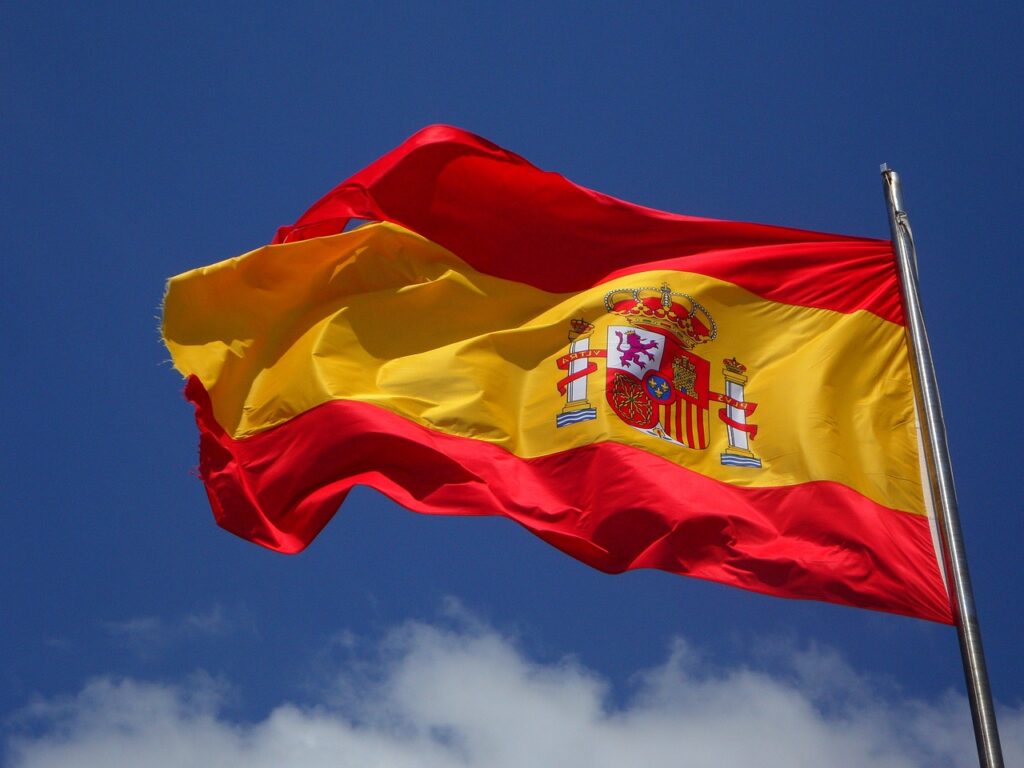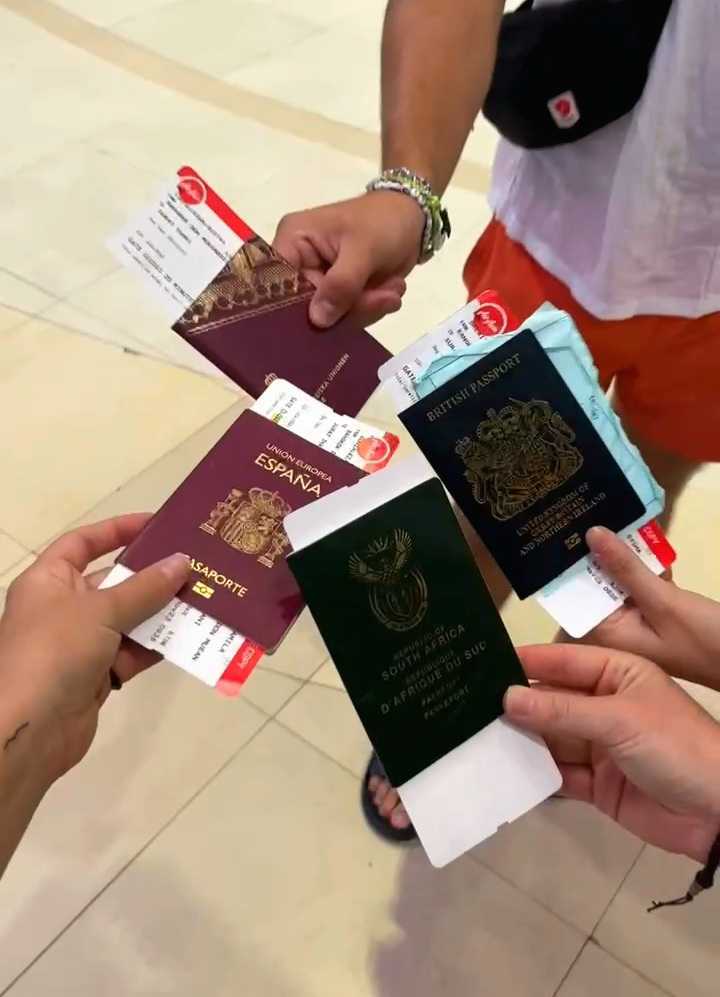A Complete Guide to the Spain Digital Nomad Visa
Rated as the number one destination for digital nomads in 2024, Spain is an ever-popular location for travellers from all across the world. And with the introduction of the Spain Digital Nomad Visa, it is easier than ever to make the country your next stop – for both EU and non-EU citizens alike.
This new visa gives remote workers and digital nomads who are self-employed, or who work for foreign companies the right to live and work in Spain while offering many perks.
There is a significantly lower tax rate for those on the Spain Digital Nomad Visa, you can bring your family/any dependents you may have, and this visa offers a great route for applying for permanent residency in Spain.
In this guide, we’ll delve into the details of the Spain Digital Nomad Visa, offering you insights into the duration, eligibility criteria, application process, tax implications, and more. Let’s navigate the intricacies of working and living as a digital nomad in Spain.
It is important to note that while this information was all correct at the time of writing, situations can change very quickly and without warning.
You should also be aware that I am writing from a UK perspective, and regulations and requirements vary from country to country.
You should make sure that you check with your own country’s advice and with your closest Spanish consulate or embassy before you make your application.
Before we begin, here is a quick summary:
Validity: Initial visa for 1 year, renewable for up to 5 years.
Target Audience: Non-EU/EEA citizens employed by non-Spanish companies or self-employed with international clients.
Fees: Non-refundable fee of €80 plus €20 for your NIE and residence permit card
Travel: Can travel around the EU and the Schengen area (no more than 90 days within 180 days)
What Is The Spain Digital Nomad Visa
Officially launched in June 2023, the Spain Digital Nomad Visa grants remote workers from outside of the EU/EEA the right to live and work in Spain while earning income from outside the country.
The visa is a temporary visa for remote workers and freelancers that provides a legal structure to work remotely in Spain. It’s a game-changer for digital nomads and remote workers alike who previously had to rely on permits and visas such as the non-lucrative residence visa, which did not actually permit remote work.
You can be self-employed or work for a majority of employers outside of Spain to be eligible.
The digital nomad visa offers an excellent means for Spain to attract international talents into the country to drive digital entrepreneurship and boost the country’s economy.

How long does the digital nomad visa last in Spain?
The Spain Digital Nomad Visa is a one-year visa but it can be extended up to five years.
This is where it gets a little confusing!
The Spain Digital Nomad Visa is what you apply for if you are applying from outside of Spain. You must process this visa at the Spanish Consulate in your country of origin or the country where you have legal residence. This can then be extended to the 3-year Digital Nomad Residency Permit once you are in Spain.
However, you can make your application if you are already in Spain using a Tourist Visa. If you choose this route, you will receive your 3-year Digital Nomad Residency Permit straight away.
Both visas serve the same purpose, allowing you as a digital nomad to live and work remotely from Spain, but you can get the digital nomad visa in your country, while you can only obtain the latter in Spain.
Whichever route you take, the visa can then be extended up to a total of five years, upon which time you can apply for permanent residency if you so wish.

Digital Nomad Visa Spain Eligibility
So who is actually able to apply for the Spain Digital Nomad Visa?
A summary:
Nationality: Citizens of non-EU/EEA countries.
Occupation: Employed by a foreign company or self-employed with international clients, no more than 20% of your income should come from Spanish companies/contracts.
Financial Requirements: At least 200% of the monthly Spanish national minimum wage (approximately £2140 per month or £25700 per year), with additional requirements for any dependents included in the application.
Education Requirements: undergraduate or postgraduate degree from a University, College or Business School of prestige, or have at least 3 years of work experience in their current field of activity.
Health Insurance: Proof of private health insurance covering your stay in Spain, travel insurance is NOT valid for the visa application.
Clean Criminal Record: No criminal convictions in Spain or other countries you’ve resided in.
But let’s take a look in a bit more depth at what these requirements mean…

Financial requirements
To be eligible for this visa, you must be able to show that you can comfortably support yourself (and any dependents where applicable).
You must be able to demonstrate that you have financial means at least 200% of the monthly Spanish national minimum wage (€1,134.00 per month in 2024).
The UK Spanish Consulate states that this is approximately £2140/€2500 per month or £25700 per year.
If you intend to travel with your family then you must be able to prove additional income in order to support them as well.
For the first family member, this is an additional means of at least 75% of the Spanish minimum wage (approximately £800 per month or £9600 per year), and for each additional family member on top of this, an extra 25% of the Spanish national minimum wage is required (approximately £270 per month or £3200 per year).
In order to prove that you meet these financial requirements you can submit any applicable proof – work contracts, bank statements, payslips, letters of engagement that state agreed payment amounts etc.
Foreign documents must be legalised or apostilled and should be submitted together with an official translation into Spanish.
You should also be aware that you will be required to pay taxes on your earnings while using the Spain Digital Nomad Visa.

Passports & Eligible Countries
All nationalities that do not belong to the European Union (EU), the European Economic Area (the EEA) or Switzerland can apply for the Spain Digital Nomad Visa.
This includes the United Kingdom, the US, Canada, Australia, and most European nations. Each of these countries has its own agreements with Spain, and therefore the required documents and fees may differ slightly.
Language requirements?
While basic Spanish skills are not mandatory for the application I would strongly recommend learning at least some rudimentary Spanish. Not only will it make your life a lot easier if you can understand the basics, but demonstrating a willingness to integrate culturally will be appreciated by the locals.
This is true for every country you visit – obviously, it is unrealistic to expect to be fluent in the languages of every country you go to but at the very least I like to learn hello (hola), goodbye (adios), thank you (gracias), how to ask for help (¿Me ayudarás?) and my coffee order (café con leche, por favor)!
What do I need to apply for the Spanish Digital Nomad Visa?
You must submit the following documents during the application process, as well as these documents for any dependants/family members that will be going to Spain with you.
The Spanish embassies and consulates for each country provide the specific list of documents needed. You can access the UK list here.

General Documents for the Spain Digital Nomad Visa
Below is a summary of the general documents that the majority of people will need to submit. You should be aware that the majority of these documents will need to be officially translated into Spanish, as well as legalised/apostilled before they can be accepted with your application.
1. National Visa Application Form:
- Applicants or representatives must complete and sign the visa application form, providing general information, details of dependents, and the purpose of the visit to Spain.
- You can access the form (in English and Spanish) here.
2. Recent Passport Photo:
- In colour, facing forward, against a light background, without dark or reflective glasses, or garments concealing the face oval.
3. Valid Passport:
- Original and photocopy of biometric data pages.
- Passport must be valid for at least 1 year, with a minimum of two blank pages.
- Passports issued over 10 years ago are not accepted.
4. Criminal Record Certificate:
- Original and copy for the past 2 years from the country of residence.
- A responsible declaration may be required for the last five years.
- Certificate should not be older than 6 months, except if specified otherwise.
- For UK Criminal Records this document would be the ACRO Certificate.
5. Proof of Address:
- In the consular district where the application is submitted, if applying form your home country.
6. Proof of Representative’s Identity and Capacity:
- If using a representative, provide a copy of their ID or passport and a copy of the power of attorney. Originals must be shown during the application.
7. Health Insurance:
- Original and copy of the certificate showing public or private health insurance authorised in Spain.
- Insurance must cover all risks insured by Spain’s public health system.
- Alternatively, submit an S1 form with proof of registration with Spanish National Social Security for Spain’s public health insurance.
8. Copy of University Degree (or equivalent) or Professional Certificate:
- Include a copy of your university, College or Business School degree, or other professional certificate, validating a minimum of 3 years of experience.
- Alternatively, provide employment history issued by your employer or government.

Requirements for Family Members:
All of the above documentation should be provided for any family members or dependents who will be covered by the visa, with the exception of the application form itself (though they should be mentioned there), and the proof of employment or degree.
You will however need to provide:
- documents proving your family relationship such as birth certificates, marriage certificates or equivalent, or a certificate of registration as an unmarried couple.
- For adult children, you must prove that they are financially dependent and their civil status.
- For dependent relatives in the ascending line, you need to show documents demonstrating they are under the care of the applicant.

UK-specific documents
These documents are specifically required by UK nationals when applying for the Spain Digital Nomad Visa. Those from other countries will have their own required documents to submit during the course for their applications.
- Certification of Work for a Foreign Company:
Obtain an employer certificate verifying at least 3 months of work, specifying contract details and explicit consent for remote work in Spain (for employees).
If you are a freelancer or otherwise self-employed, the certificate should outline contract length and terms for your remote work.
- Certificate from the Government Companies House:
You may need to supply a certificate from the Government Companies House, which shows the creation date of your company or the company you work for, and the business nature.
- If you are registered with the British National Social Security:
You’ll need to complete the S1 form and provide proof of registration with the Spanish National Social Security.
If you are an employee, you will also need to submit a responsible declaration from your employing company committing to British social security obligations.
Self-employed individuals need a responsible declaration and should include the A1 form from HMRC.
- If you are registered with the Spanish National Social Security:
If registered, then you’ll provide a certificate confirming the company and employee registration.
Self-employed individuals must include a certificate of registration with RETA (“Régimen Especial de Trabajadores Autónomos” (Special Regime for Self-Employed Workers)).

How To Apply For Spain's Digital Nomad Visa?
As I’ve explained there are two routes you can take to obtain your Spanish Digital Nomad Visa – applying in your country of origin, or applying from Spain.
The application can take anywhere from several weeks to a few months, due to the amount of documents you need to provide, the demand for the visa, and the need to have documents translated and apostilled.
Step-by-step guide
Your first step is to apply for an NIE (Foreigner Identity Number/Número de Identificación de Extranjero) number – this has to be done before your application for the Spain Digital Nomad Visa or you will not be approved.
As with the visa, you can make your application for the NIE number either directly in Spain or at the Consular Office of your home country of residence. The fee for this is €9-15 dependent on your country of origin. The processing time takes around three weeks so be sure to factor this into your travel plans.
You will need to complete these two forms: EX-15 standard application form (not signed), and Form 790, code 12. You can find more information about the NIE number and the application here.
Once you’ve got your NIE, you should complete the following steps:
- Gather Documents: Prepare all the required documents as listed above, plus any additional documents required due to your country of origin.
- Get all documents translated and apostilled if required by your embassy or consulate
- Book an appointment with the nearest Spanish embassy or consulate.
- Payment of the visa fee: The fee has to be paid in local currency and it is subject to regular changes due to currency fluctuations. It also changes depending on your home country’s agreement with Spain, but typically it is around €80.
- Attend the visa appointment: When you arrive at the Spanish embassy or consulate, ensure you are equipped with your complete documentation and prepared to answer any initial questions the interviewer may ask. You’ll also have to leave your passport at the embassy or consulate as part of the application assessment process.
- Decision and Visa Collection: this can take between 15 and 45 days. Once approved, collect your visa and prepare for your Spanish adventure!
Tax Implications for Digital Nomads in Spain
Taxes in Spain can be complex, so consulting a tax advisor familiar with Spanish regulations would be a very good idea.
The tax system is quite advantageous for those using the digital nomad visa in Spain, thanks to the improved non-resident income tax regime (IRNR), which allows you to save tax.
Compared to the regular resident income tax rates (IRPF) in Spain, you will be paying much less on your income through the IRNR.
You will only pay 15 to 24% of your income with the non-resident visa (up to €600,000 per year), compared to the regular income tax of up to 48% on higher salaries.
To be eligible for the non-resident tax, you should apply with the Spanish Tax Agency within the first six months after obtaining your digital nomad visa.
Work Restrictions or Limitations On The Digital Nomad Visa
Remember, this visa is for remote work carried out outside of Spain. If you’re self-employed, the work you carry out for a company located in Spain must not exceed 20% of your total professional activity.

Pros & Cons Of Spain's Digital Nomad Visa
Advantages of the Spain digital nomad visa
- Relatively affordable compared to other European destinations.
- Vibrant digital nomad community for connection and support.
- Diverse landscapes from beaches to mountains, catering to various preferences.
- Rich cultural heritage and exciting cuisine.
- Fast-growing tech scene and co-working spaces.
- Can travel to other European nations.
Disadvantages of the Spain digital nomad visa
- Limited to remote work outside of Spain.
- Spanish income tax rates can be higher than some other countries.
- Language barrier might pose challenges for some.
- The initial application process can be time-consuming.
- Lots of prerequisites (degree requirement for example)
- You must spend at least 183 days per year in Spain to maintain your visa status.
Popular Locations for Digital Nomad Communities In Spain
From bustling Barcelona to laid-back Valencia, Spain offers a variety of thriving digital nomad communities. Popular locations include:
Barcelona and Madrid: busy and popular cities with growing nomad communities and plenty to do and see! These are great choices if you want to be in the thick of it, but they do have a higher cost of living than many other Spanish cities. You should be aware also that Barcelona is the primary biotech hub in Spain, establishing itself as one of the top locations in Europe for doing business in this thriving industry.
Las Palmas de Gran Canaria, Canary Islands: This vibrant island city offers the perfect blend of city life and beach vibes. With year-round sunshine, a thriving digital nomad community, and a relaxed atmosphere, it’s a great place to set up base. Plus, the Canary Islands have their own digital nomad visa program, making it easy to stay for longer.
Valencia: Valencia is a more affordable option than Barcelona or Madrid, but still has a large and active digital nomad scene, with great transport connections to the res of the country. The city boasts beautiful beaches, a delicious food scene, and a lively cultural scene. Plus, it’s a great base for exploring the rest of the Valencia region, including charming towns like Altea and Jávea.
Málaga: This Andalusian city is known for its beautiful beaches, and historic centre. It’s also becoming an increasingly popular destination for digital nomads, thanks to its growing co-working spaces and friendly atmosphere. It doubles as a start-up hub and it increasingly becoming home to many of Spain’s rising tech companies.

Tips For Cultural Adaptation For Digital Nomads
I think the best general top tips for cultural adaption, no matter where you are travelling are:
- Learn basic phrases.
- Respect local customs and traditions.
- Embrace the slower pace of life.
- Connect with the local community.
- Be open to new experiences.
Specifically for Spain, these are the main things that I think new visitors should be aware of:
Siestas and horarios: Be prepared for different working hours. Many businesses close in the afternoons or over midday and reopen later in the evening. This is especially true in the smaller towns, so be prepared and adjust your schedule accordingly.
Social Customs: This is a much more tactile culture than we have in Britain. Embrace social interactions, engage in small talk, and be ready for longer lunches and dinners. Respect personal space but be aware of a more tactile culture with close greetings and gestures.
Cost of living: While generally affordable, costs vary by city. Research cost of living in your chosen location, including housing, groceries, transportation, and entertainment.
Food and dining: Be prepared for later dinner times than you may be accustomed to. Enjoy tapas culture, explore local markets, and savour different regional cuisines. Adapt to smaller portions and longer dining experiences.

Brief Comparison With Other Digital Nomad Visas
Remember, the “best” Digital Nomad Visa depends on your individual needs and priorities. You should consider factors like cost of living, visa requirements, community vibes, and your lifestyle preferences when making your choice.
Here’s a brief overview of how the Spain Digital Nomad Visa stands out in the EU alongside other programs like those of Portugal, Greece, and Estonia. Here’s how they compare:
- Portugal offers a D8 Visa for remote workers, which requires proof of stable income.
- Greece stipulates a lower income requirement compared to Spain for its nomad visa, aiming to entice remote workers with its inviting climate and cost of living.
- Estonia provides a special visa for digital workers from outside the EU, with a simple application process but high financial requirements.
| Feature | Spain | Portugal | Estonia | Greece |
| Validity | 1 year (renewable for up to 5 years) | 1 year (renewable indefinitely) | 1 year (renewable for up to 3 years) | 1 year (renewable for up to 2 years) |
| Financial requirements | €2500/mth individual | €3280/mth individual | €3500/month individual | €2000/month individual |
| Tax benefits | No specific tax benefits | tax benefit only for those doing research | No specific tax benefits | 7% income tax for digital nomads |
| Language requirements | Not mandatory | Not mandatory | English proficiency required | English proficiency required |
| Cost of living | Moderate | Low-Moderate | Moderate – high | Moderate |
| Digital nomad community | Vibrant and diverse | Strong | Established | Emerging |
| Pros | Diverse landscapes, cultural richness, fast-growing tech scene | Easy renewals, strong digital nomad community | EU membership, e-residency program | Tax benefits, English-speaking environment |
| Cons | Limited to remote work outside of Spain, higher tax rates | Competitive income requirements | Language barrier, limited job opportunities | New program, limited information |
Conclusion
The Spain Digital Nomad Visa is a great new addition to the options available for travellers and digital nomads, making Spain the top destination for digital nomads in 2024. Whether you are a non-EU/EEA citizen employed by a foreign company or a self-employed individual with international clients, this visa offers a golden opportunity to live and work in Spain with enticing perks, even opening up opportunities to explore wider Europe while continuing your career.
In a broader context, the Spain Digital Nomad Visa stands out among EU counterparts, offering a balance of affordability, cultural richness, and diverse landscapes. Ultimately, the best choice depends on individual preferences, considering factors such as cost of living, visa requirements, community vibes, and lifestyle priorities.
You should make sure that you check with your own country’s advice and with your closest Spanish consulate or embassy before you make your application.
Let us know what else you want to know, and what country we should cover next by leaving a comment below! Don’t forget to check out our Thailand Digital Nomad Visa guide here.




